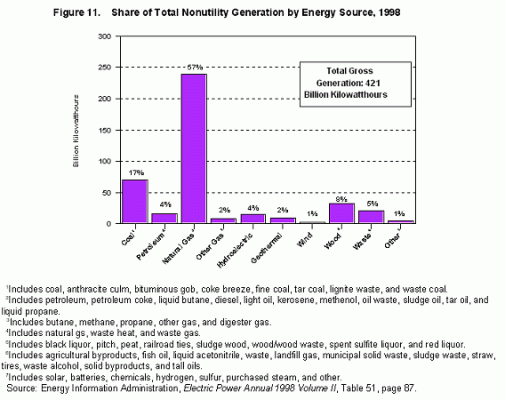Whakamole said:
All I did was point to the survey you mentioned, and brought up their own survey.
If you think everything I post is an attack on you, then you really do need to calm down.
All you did was reference a web site that referenced the study I mentioned.
Lets recap this, since you insist.
Cut-throat mentions that of the many ways we spend money, putting it into alternative energy programs would likely have been more beneficial. While one could argue the merits of which things we should or shouldnt have done, the basic point is tough to argue with.
But you did, specifically saying
"Higher energy prices will do more to spur innovation in fuel efficiency and alternative energy sources than any government program.
The reason hybrid cars are selling so well is because of gas prices.
Similarly, the reason that wind energy got a big boost a few years ago was because of high utility prices."
I pointed out that every point is factually incorrect.
In fact, virtually NO effort to increase fuel economy or develop alternative energy sources has taken place without government stimulation of one sort or another, even in the face of skyrocketing energy costs. I provided an example of CAFE laws (the industry, on its own, gave us the pinto and vega back in 1974 in response to the first oil 'crisis', then went back to big cars. Then fought the cafe laws almost every year). Your counter example, when read, fully supports exactly what I said.
Hybrid cars, by every statistically valid survey I can find do not list 'high gas prices' as a cause at all, but I'll let that slide to 'better fuel economy', which usually comes in 3rd or 4th on the list of reasons, rather than the highest. I would suspect that without government tax incentives, that very few people would buy hybrids at all.
Lastly you mentioned wind and I noted that virtually no project based on wind based energy has or would have been put in place without government supported tax programs and incentives. Your further editorializing doesnt provide any information to alter that finding. Although I will point out that wind, at ~50% duty cycle in most areas, and with a cost figure that is far higher than yours because yours does not include energy storage costs and potentially high land costs, isnt really a strong contender for a replacement energy source. In short, there is virtually no correlation whatsoever between wind based programs and higher oil costs.
Hence, your original points are invalid and generally unrelated to the original point cut-throat made, unless of course you're simply trolling or trying to be argumentative, which does appear to be your 'strong' suit. All subsequent discussion is nothing more than distracting rat holing, which is typical of your standard trolling effort.
As far as 'attacks' go, for someone who has a sig 'pissing in ths morning coffee' and who has consistently attacked me for no reason that I can fathom, I think my level of calmness is appropriate.
It does occur to me though that you appear to want attention and have decided to use this approach to get it, and i'm just feeding the troll.

